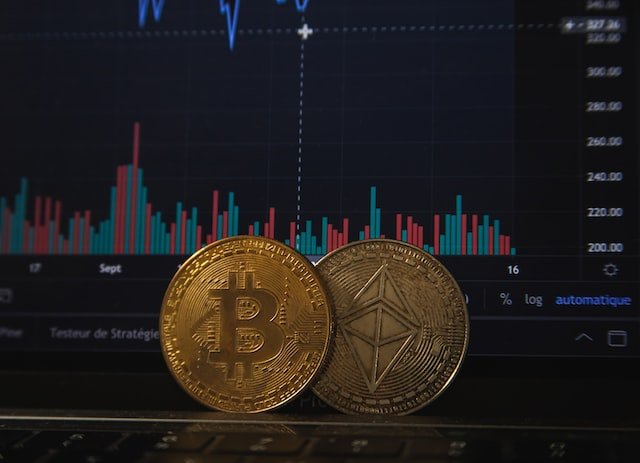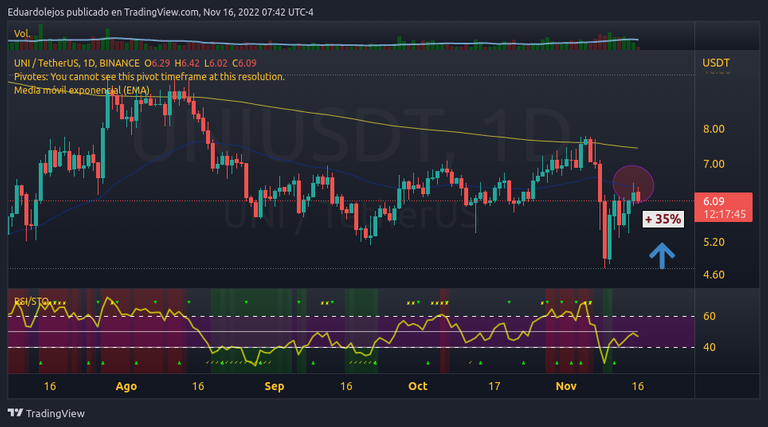VERSIÓN EN ESPAÑOL

Source
Una de las grandes y principales noticias de estos días relacionadas con el mundo blockchain y de criptomonedas ha sido la quiebra del segundo exhchange más grande del momento, FTX. Ha sido tal el impacto negativo de esto que aun cuando la inflación, uno de los lastres que el mundo financiero en general ha sufrido este año, ha mostrado mejoría, se ha retrasado la positiva influencia que tal acontecimiento también representa para los inversores en activos criptográficos. No obstante, esto también representa una oportunidad para aprender y/o recordar algunas lecciones importantes:
Potenciar la blockchain
No debemos olvidar que los exchanges centralizados nacen como servicios de terceros para facilitar el intercambio de criptomonedas, ya sea entre sí, o - la razón principal por las que se les busca - intercambio con monedas fiats, y aunque se agradece este servicio no es esto a lo que aspiramos sino a que se fortalezca de tal manera la tecnología blockchain que ni siquiera para este particular se necesite acudir a un tercero.
Es necesario, pues, que se siga innovando y apostando a la creatividad para que cada vez sea menos la necesidad de acudir a servicios que no son parte de la tecnología blockchain, porque esta es la verdad, estos exchanges sirven o se sirven de ella, pero esta les supera porque precisamente nace para eliminar todo intermediario.

Source
No son tus llaves, no son tus criptos
Precisamente el eliminar todo intermediario pasa por empoderar a las personas de sus fondos, por ello, siempre se insiste al abrir una wallet personal el hecho de resguardar bien las claves privadas, ya que es lo que nos da la seguridad que los fondos que tengamos nos pertenecen, pudiésemos afirmar que en ellas está nuestra identidad para la blockchain.
Al pasar unos activos a un exchange los pasamos a la wallet del exchange, por eso, siempre será un riesgo el que los tengamos allí, pues, pueden ser congelados, nos pueden limitar en depósitos y/o retiros, como de hecho lo vivimos hace poco en nuestra blockchain de Hive luego del hard fork. De allí que es necesario tomar nuestras previsiones y que así como nos dicen que en criptos solo se invierte lo que se está dispuesto a perder, pues, con mayor razón, si lo vamos a pasar a un exchange, es un riesgo que asumimos, pues con los acontecimientos actuales se nos ha enseñado que es un peligro siempre latente.
Ciertamente, a esto puede ayudar mucho que se regule más y mejor todo lo que concierne a estos exchanges centralizados, no obstante, siento que por ahora lo mejor es usarlos para cosas puntuales y no confiarles de manera ciega nuestro dinero.

Source
Los DEX como parte de la solución
¿Qué podemos hacer entonces si queremos intercambiar nuestros cripto activos con más seguridad? La opción que emerge hoy en día de manera muy clara son los exchanges descentralizados, donde sin necesidad de intermediarios podemos comerciar diversos activos.
Aquí en Hive tenemos varios ejemplos, como leodex.io o tribaldex.com, pero también en las otras blockchains existen proyectos semejantes, por hablar de una de las más populares pongamos como ejemplo a Ethereum, la cual entre tantos otros alberga en sí a Uniswap, donde podemos comerciar diversos activos pertenecientes a esta red.
Precisamente, en estos días donde el mercado criptográfico ha prolongado su tendencia bajista, uno de los tokens que mejor ha resistido ha sido UNI, el token central de la plataforma DEX anteriormente señalada. De hecho, en la vela diaria de ayer tocó la media móvil de 50 y hoy se encuentra en un retroceso esperado, luego de haber subido alrededor de un 35% luego de la caída del mercado criptográfico la semana pasada.


ENGLISH VERSION

Source
One of the big and main news of these days related to the blockchain and cryptocurrency world has been the bankruptcy of the second largest exhchange of the moment, FTX. Such has been the negative impact of this that even though inflation, one of the drags that the financial world in general has suffered this year, has shown improvement, the positive influence that such an event also represents for investors in crypto assets has been delayed. However, this also represents an opportunity to learn and/or remember some important lessons:
Empower the blockchain.
We must not forget that centralized exchanges are born as third-party services to facilitate the exchange of cryptocurrencies, either among themselves, or - the main reason why they are sought after - exchange with fiat currencies, and although this service is appreciated this is not what we aspire to, but to strengthen blockchain technology in such a way that even for this particular purpose it is not necessary to turn to a third party.
It is necessary, therefore, to continue innovating and betting on creativity so that there is less and less need to resort to services that are not part of the blockchain technology, because this is the truth, these exchanges serve or are served by it, but this surpasses them because it was born precisely to eliminate all intermediaries.

Source
They are not your keys, they are not your cryptos.
Precisely the elimination of all intermediaries involves empowering people of their funds, therefore, it is always insisted when opening a personal wallet the fact of safeguarding well the private keys, since it is what gives us the security that the funds we have belong to us, we could affirm that in them is our identity for the blockchain.
When we transfer assets to an exchange, we transfer them to the wallet of the exchange, therefore, it will always be a risk to have them there, because they can be frozen, they can limit our deposits and/or withdrawals, as we recently experienced in our Hive blockchain after the hard fork. Hence, it is necessary to take our precautions and just as we are told that in cryptos we only invest what we are willing to lose, so, with greater reason, if we are going to move it to an exchange, it is a risk that we assume, because with the current events we have been taught that it is an ever-present danger.
Certainly, it can help a lot to regulate more and better everything that concerns these centralized exchanges, however, I feel that for now it is best to use them for specific things and not blindly trust them with our money.

Source
DEX as part of the solution
So what can we do if we want to exchange our crypto assets more securely? The option that emerges today in a very clear way are decentralized exchanges, where without the need for intermediaries we can trade various assets.
Here in Hive we have several examples, such as leodex.io or tribaldex.com, but also in the other blockchains there are similar projects, to speak of one of the most popular let's take Ethereum as an example, which among many others hosts Uniswap, where we can trade various assets belonging to this network.
Precisely, in these days where the crypto market has prolonged its downtrend, one of the tokens that has best resisted has been UNI, the central token of the DEX platform previously mentioned. In fact, in yesterday's daily candle it touched the 50 moving average and today it is in an expected pullback, after having risen about 35% following last week's crypto market crash.





The rewards earned on this comment will go directly to the people( @jesusalejos ) sharing the post on Twitter as long as they are registered with @poshtoken. Sign up at https://hiveposh.com.